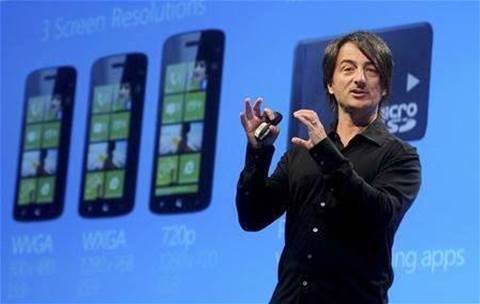Microsoft is reportedly giving free Windows Phone licences to a pair of Indian handset manufacturers - meaning they pay less for software than they would using Android.
Microsoft has long been rumoured to be cutting the costs of licences for its various operating systems, but this is - if true - the first time Windows Phone will be distributed at no cost at all.
The report - which comes from the Times of India - claimed that Microsoft is giving Windows Phone licences to Lava and Karbonn, a pair of Indian manufacturers who recently announced plans to offer Windows Phone handsets alongside their Android models.
That makes Windows Phone even cheaper to use than Android, noted Canalys analyst Tim Coulling - as many handset makers that use Google's OS pay patent royalties to Microsoft.
"If they did make Windows Phone free, it could potentially mean that those phones would be cheaper than Android on equivalent hardware," he told PC Pro.
"Manufacturers pay a licensing fee to Microsoft for using Android and that's kind of rolled into their bill of materials cost," he explained. "If Microsoft made Windows Phone completely free, there wouldn't be that, so you would get a slightly cheaper bill of materials with a Windows Phone device than you would an Android device."
"That's an interesting proposition there," he added.
The Android fee paid to Microsoft depends on many factors, varying by manufacturer and even handset. It could be as low as US$5 per phone - but that could still make a difference with tight margins in emerging markets, he noted.
Reports last year pinned Microsoft's revenue from those royalties as high as US$2 billion.
Making Windows Phone free to use could also encourage bigger players, such as Samsung and HTC, to use it on new handsets - a move Coulling thinks they should already be making.
"Nobody in the industry wants to see a monopoly, and vendors should look at and experiment with other platforms," he said. "It doesn't pay to have all of your devices on one operating system; strategically it would be in their interest if they looked at Windows Phone."
However, Coulling noted that making the Windows Phone system software free doesn't mean there's no money changing hands. "The OS might be come free, but I'm sure they would look to get some sort of licensing from using Office on a handset," he said.
OS for free
The report has not been confirmed by Microsoft - the company is yet to reply to our request for comment - but it would seem to fit with Microsoft's wider plans.
"There's definitely some activity around getting Windows itself cheaper for small tablets to make Windows OS more competitive in the tablet space," Coulling noted. "I wouldn't be surprised if Microsoft would be looking at that [making Windows Phone cheaper or free]".
Microsoft has signalled a shift from a software company to a "devices and services" provider - and new CEO Satya Nadella looks set to continue that change. "Some of the conversations that I've heard around the new CEO, and the comments he's made," Coulling said, suggest that we shouldn't "bet that what Microsoft has done in the past is what Microsoft will do in the future."
Nokia's move
Microsoft reportedly previously charged Nokia US$20 to US$30 for each handset running Windows Phone - though it effectively handed the Finnish firm the money to pay it with via its support deal.
Now Microsoft has bought Nokia's hardware arm, and one of the handset maker's last moves before being brought into the fold was to release three Android smartphones, dubbed Nokia X.
That could seem controversial, now that Microsoft appears to be targeting the lower end of the smartphone market, but Coulling says the Nokia Android phones will - for the most part - target an even lower end of the market than the "free" Windows Phone handsets.
"You're going to see more overlap in the lower price band of Windows and the upper-price band of Nokia X," he said. "You'll see Nokia X tracking below Windows Phone for the time being anyway, but Microsoft and Nokia both know there'll be some overlap in terms of product."






.png&h=142&w=230&c=1&s=1)

_(27).jpg&h=142&w=230&c=1&s=1)




.jpg&w=100&c=1&s=0)








_(1).jpg&q=95&h=298&w=480&c=1&s=1)


